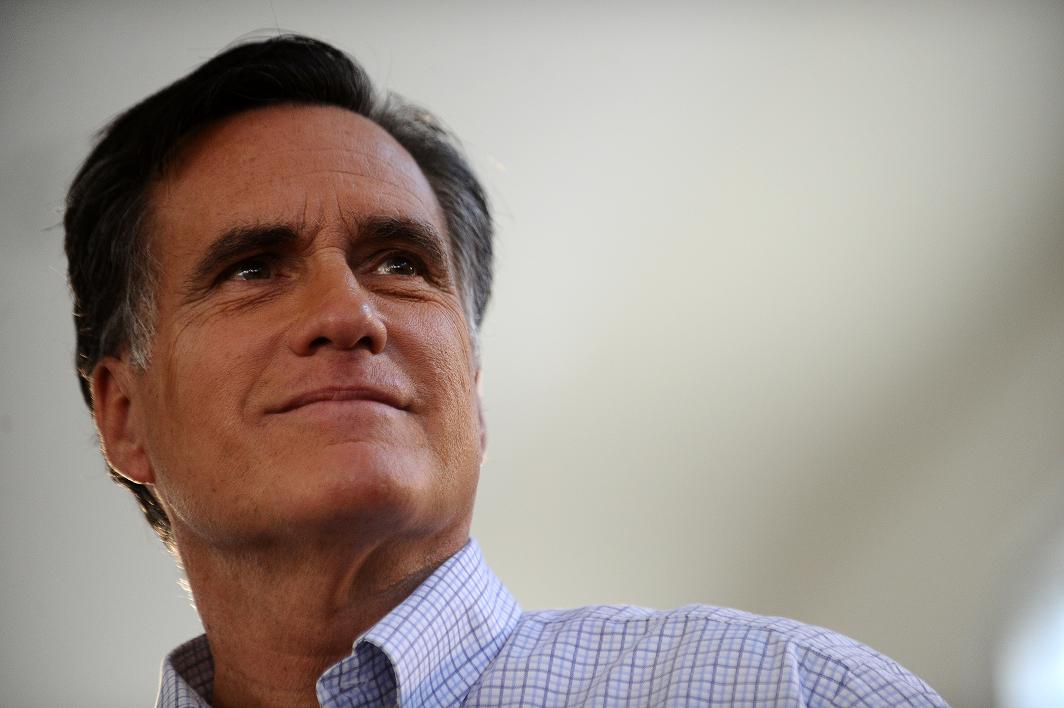Romney won the votes of white evangelicals, Catholics

Your support helps us to tell the story
From reproductive rights to climate change to Big Tech, The Independent is on the ground when the story is developing. Whether it's investigating the financials of Elon Musk's pro-Trump PAC or producing our latest documentary, 'The A Word', which shines a light on the American women fighting for reproductive rights, we know how important it is to parse out the facts from the messaging.
At such a critical moment in US history, we need reporters on the ground. Your donation allows us to keep sending journalists to speak to both sides of the story.
The Independent is trusted by Americans across the entire political spectrum. And unlike many other quality news outlets, we choose not to lock Americans out of our reporting and analysis with paywalls. We believe quality journalism should be available to everyone, paid for by those who can afford it.
Your support makes all the difference.Concerns that Mitt Romney's Mormonism would put off white evangelical voters did not bear out at the polls Tuesday.
Seventy-eight percent of white evangelical Christians went for Romney, according to exit poll results, up from 74 percent for the 2008 Republican presidential nominee, John McCain. White evangelical Christians made up 26 percent of the electorate this year, as they did in 2008.
Mark DeMoss, a prominent evangelical communications executive who has been an adviser to Romney since before 2008, said Wednesday that the apparent absence of focus on Mormonism was "something to feel good about, and there's not a lot to feel good about."
"This showed that having a common faith was not a litmus test. Where I think in not too many years past it was something of a test for evangelicals," DeMoss said.
Overall, the faith groups that traditionally support Republicans — people who identify as white Christians — evangelicals and more observant white Catholics — went for Romney in even stronger numbers than they did for McCain in 2008.
The gains, however, weren't enough to turn the tide in Romney's favor, in part because those groups are a smaller portion of the electorate than they used to be. Americans who are religiously unaffiliated or are religious non-Christians are a growing slice of the population, and they lean heavily Democratic, as do non-white Christians.
"One thing really driving this is the dramatic shift in the character and profile of American religiosity in general. Americans are becoming less white, less Christian, and those people strongly support Democrats," said Daniel Cox, research director of the Public Religion Research Institute.
But President Obama lost some of the support he had among various faith groups in 2008. He won seven in 10 religiously unaffiliated voters, down from 75 percent in 2008. He won 50 percent of the overall Catholic vote, compared with 54 percent in 2008.
In addition to the white evangelical vote, Romney won 30 percent of Jewish voters, up from McCain's 21 percent in 2008 (for Jews, that's the strongest GOP vote since 1988). But Jews are only 2 percent of the voting population. Romney's gains among Catholics — at 48 percent, up from 45 percent for McCain in 2008 — were offset by the fact that Catholics made up 25 percent of the electorate, the lowest share since exit polls began 40 years ago.
The flux going on in the American Catholic church was also evident at the polls.
Many Catholics have left the faith — 12 percent of Americans are former Catholics — or are frustrated with the church's hierarchy. Catholic bishops launched their largest campaign in a generation this year, against the Obama administration's health-care mandate for employers to provide health-care benefits to cover contraceptives, a requirement bishops and other religious conservatives called a severe threat to religious liberty.
Bishops across the country ramped up the campaign on the Sunday before Election Day, with many requiring priests to warn congregants on this issue. But Obama still split Catholics, with 50 percent voting for the president and 48 percent against, even as 56 percent of Catholics who attend weekly services voted for Romney.
Some white evangelical leaders spoke out early against the Mormon doctrine — including the Rev. Robert Jeffress, an ally of Texas Gov. Rick Perry, a GOP challenger in the primaries, and mega-church pastor Rick Warren — but Romney's Mormonism proved a non-issue at the polls.
Even so, changing demographics or turnout appears to have had a dampening effect in some battleground states. In Virginia, exit polls show the percentage of the electorate calling themselves white evangelical went from 28 percent to 23 percent, and in North Carolina the number dropped from 44 percent to 35 percent. Both groups went heavily for Romney.
Even Mormon experts said they were surprised that discomfort among traditional Christians with Romney's faith was so thoroughly trumped by those voters' desire to defeat Obama.
"I think the fraction of evangelicals who wouldn't vote for him stayed home," said Matthew Bowman, a Mormon who teaches religion at Hampden-Sydney College in Virginia.
Subscribe to Independent Premium to bookmark this article
Want to bookmark your favourite articles and stories to read or reference later? Start your Independent Premium subscription today.
Join our commenting forum
Join thought-provoking conversations, follow other Independent readers and see their replies
Comments